Copperfingertips - Represent The Human Race
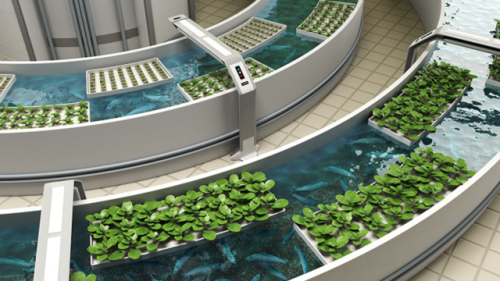
More Posts from Copperfingertips and Others
People being happy with what they have is the worst thing that could ever happen to the economy
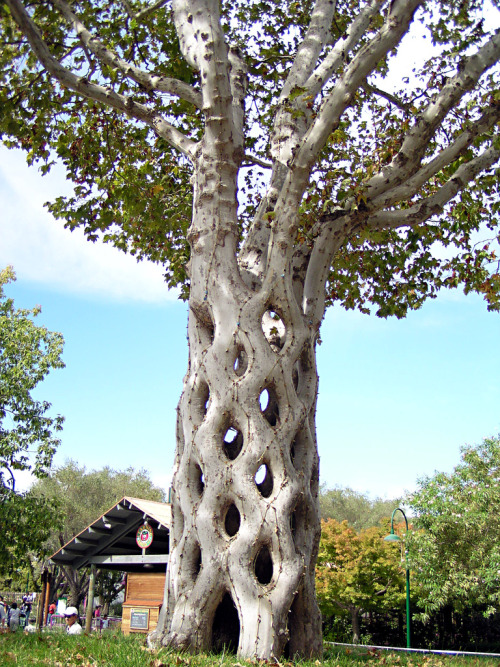
Circus Tree: Six individual sycamore trees were shaped, bent, and braided to form this.


Self-watering capillary planters
This water-saving ‘ready-made garden’ design is popular among urban gardeners here in Denmark: it’s comprised of a simple styrofoam planter, and a 40L soil bag.
Holes are cut in the top and bottom of the soil bag, and soil is pushed into three pillars that reach down into a water reservoir. The reservoir is filled with water and fertiliser through a channel on the side of the planter; capillary action (and eventually, plant roots) draw the water up.
The rate of evaporation is much lower with bottom-watered plants, and the styrofoam also keeps the water cool. The reservoir can hold a week or more of water.
A popular DIY version involves using plastic tubs, creating a reservoir underneath with bottles, or a permeable barrier.

Self Irrigating Planters Made Easy
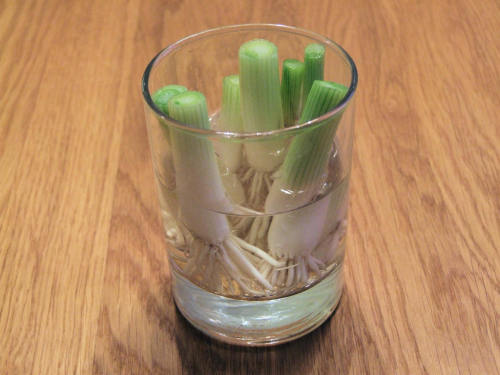
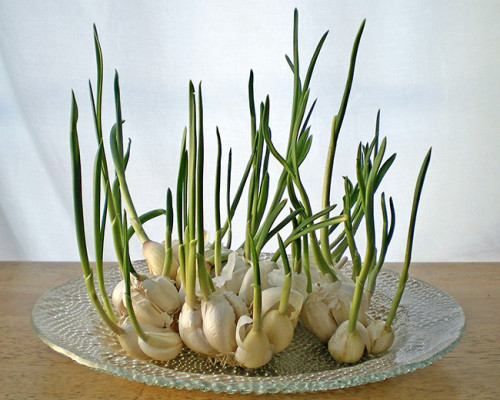
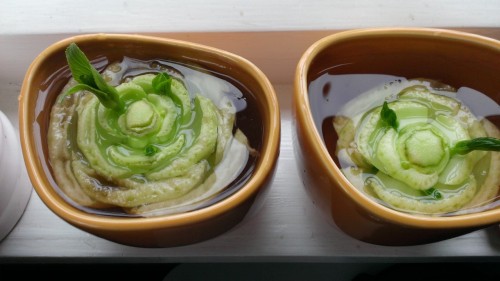
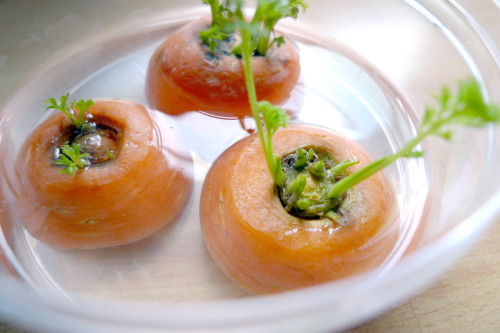
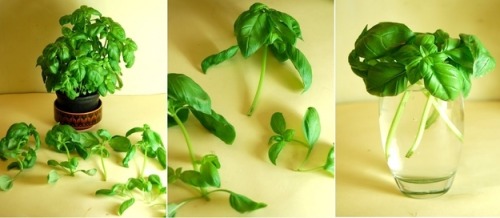

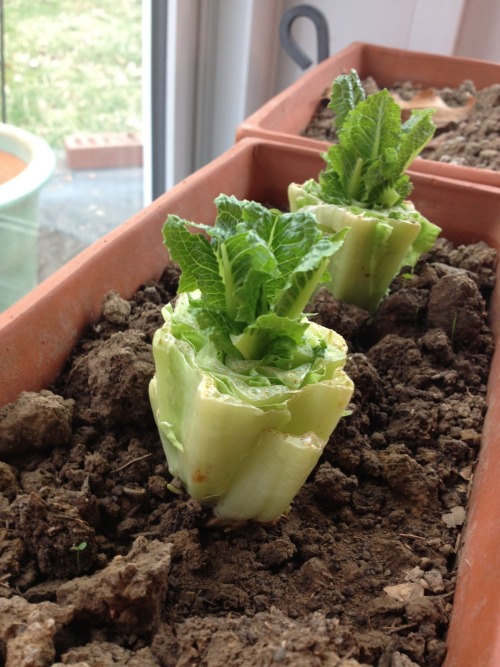
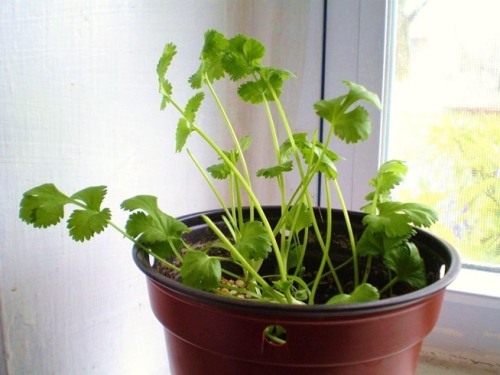
8 vegetables that you can regrow again and again.
Scallions
You can regrow scallions by leaving an inch attached to the roots and place them in a small glass with a little water in a well-lit room.
Garlic
When garlic begins to sprout, you can put them in a glass with a little water and grow garlic sprouts. The sprouts have a mild flavor than garlic and can be added to salads, pasta and other dishes.
Bok Choy
Bok choy can be regrown by placing the root end in water in a well-lit area. In 1-2 weeks , you can transplant it to a pot with soil and grow a full new head.
Carrots
Put carrot tops in a dish with a little water. Set the dish in a well-lit room or a window sill. You’ll have carrot tops to use in salads.
Basil
Put clippings from basil with 3 to 4-inch stems in a glass of water and place it in direct sunlight. When the roots are about 2 inches long, plant them in pots to and in time it will grow a full basil plant.
Celery
Cut off the base of the celery and place it in a saucer or shallow bowl of warm water in the sun. Leaves will begin to thicken and grow in the middle of the base, then transfer the celery to soil.
Romaine Lettuce
Put romaine lettuce stumps in a ½ inch of water. Re-water to keep water level at ½ inch. After a few days, roots and new leaves will appear and you can transplant it into soil.
Cilantro
The stems of cilantro will grown when placed in a glass of water. Once the roots are long enough, plant them in a pot in a well-lit room. You will have a full plant in a few months.



Printed Solar Bio-Batteries
Led by biotechnologist Marin Sawa, a group of researchers at Imperial College London have devised a way to print solar cells onto paper. They use an inkjet printer to place a conductive layer of carbon nanotubes and a layer of living cyanobacteria to create devices which can capture and store solar energy.
In their proof-of-concept experiment, the cyanobacteria survived the printing process and were able to produce energy from photosynthesis. The trial panel was palm sized and gave enough energy to power a small LED light. Even better, being little more than paper, carbon, and bacteria, the bio-cells are fully biodegradable.
The work is part of an emerging field of science called microbial biophotovoltaics (presumably related to the biovoltaics I’ve mentioned here before) which uses algae and cyanobacteria to generate energy. The energy generated may be small, but it’s also cheap and easy to manufacture, and the microbes can continue generating electricity after dark, using compounds made during daylight.
The bio-batteries aren’t intended to replace standard photovoltaics for large scale energy production. Instead, they can provide an inexpensive and renewable source of energy for specific uses, such as air quality monitors and healthcare applications.
“Imagine a paper-based, disposable environmental sensor disguised as wallpaper, which could monitor air quality in the home. When it has done its job it could be removed and left to biodegrade in the garden without any impact on the environment.” – Marin Sawa
Sawa et al (2017) – open access

Repair Cafés
Repair Cafés are free meeting places and they’re all about repairing things (together). In the place where a Repair Café is located, you’ll find tools and materials to help you make any repairs you need. On clothes, furniture, electrical appliances, bicycles, crockery, appliances, toys, et cetera. You’ll also find expert volunteers, with repair skills in all kinds of fields.
Visitors bring their broken items from home. Together with the specialists they start making their repairs in the Repair Café. It’s an ongoing learning process. If you have nothing to repair, you can enjoy a cup of tea or coffee. Or you can lend a hand with someone else’s repair job. You can also get inspired at the reading table – by leafing through books on repairs and DIY.
There are over 1.500 Repair Cafés worldwide. Visit one in your area or start one yourself!
Read more…








8 vegetables that you can regrow again and again.
Scallions
You can regrow scallions by leaving an inch attached to the roots and place them in a small glass with a little water in a well-lit room.
Garlic
When garlic begins to sprout, you can put them in a glass with a little water and grow garlic sprouts. The sprouts have a mild flavor than garlic and can be added to salads, pasta and other dishes.
Bok Choy
Bok choy can be regrown by placing the root end in water in a well-lit area. In 1-2 weeks , you can transplant it to a pot with soil and grow a full new head.
Carrots
Put carrot tops in a dish with a little water. Set the dish in a well-lit room or a window sill. You’ll have carrot tops to use in salads.
Basil
Put clippings from basil with 3 to 4-inch stems in a glass of water and place it in direct sunlight. When the roots are about 2 inches long, plant them in pots to and in time it will grow a full basil plant.
Celery
Cut off the base of the celery and place it in a saucer or shallow bowl of warm water in the sun. Leaves will begin to thicken and grow in the middle of the base, then transfer the celery to soil.
Romaine Lettuce
Put romaine lettuce stumps in a ½ inch of water. Re-water to keep water level at ½ inch. After a few days, roots and new leaves will appear and you can transplant it into soil.
Cilantro
The stems of cilantro will grown when placed in a glass of water. Once the roots are long enough, plant them in a pot in a well-lit room. You will have a full plant in a few months.

Day 1612 - We use Imperfect Produce for most of our fruits and veggies at the moment. I’ve always loved that most of their produce comes loose in the box and I appreciate that they recently started prominently labeling the items that would come in plastic.

When I first saw this headline on Facebook I braced myself to be disappointed. But it sounds like this park was designed really well, consulting the disability rights community, doctors, etc. and keeping in minds the various needs of people with differing disabilities.
How an island turned around their climate catastrophe
-
 cinderstill liked this · 1 year ago
cinderstill liked this · 1 year ago -
 ceilinglizardjudgesu reblogged this · 1 year ago
ceilinglizardjudgesu reblogged this · 1 year ago -
 yokai-world liked this · 1 year ago
yokai-world liked this · 1 year ago -
 cybildra reblogged this · 1 year ago
cybildra reblogged this · 1 year ago -
 beeandpupcat liked this · 1 year ago
beeandpupcat liked this · 1 year ago -
 elnoncheckcomdown liked this · 1 year ago
elnoncheckcomdown liked this · 1 year ago -
 herebedragonsinplaid reblogged this · 1 year ago
herebedragonsinplaid reblogged this · 1 year ago -
 visualusscriber liked this · 1 year ago
visualusscriber liked this · 1 year ago -
 stickyarbiterwombat liked this · 1 year ago
stickyarbiterwombat liked this · 1 year ago -
 wheel-of-whimsy reblogged this · 1 year ago
wheel-of-whimsy reblogged this · 1 year ago -
 everlastingrandom liked this · 1 year ago
everlastingrandom liked this · 1 year ago -
 casestudy-mw liked this · 1 year ago
casestudy-mw liked this · 1 year ago -
 danielkhent liked this · 1 year ago
danielkhent liked this · 1 year ago -
 cedardivine liked this · 1 year ago
cedardivine liked this · 1 year ago -
 aheeheemwhimper liked this · 1 year ago
aheeheemwhimper liked this · 1 year ago -
 alysvolatile liked this · 1 year ago
alysvolatile liked this · 1 year ago -
 the-bramble--patch liked this · 1 year ago
the-bramble--patch liked this · 1 year ago -
 solarpunkaestheticweek reblogged this · 1 year ago
solarpunkaestheticweek reblogged this · 1 year ago -
 notacrabyet liked this · 1 year ago
notacrabyet liked this · 1 year ago -
 truemacabrekidbutoldlike liked this · 1 year ago
truemacabrekidbutoldlike liked this · 1 year ago -
 heskynn liked this · 1 year ago
heskynn liked this · 1 year ago -
 princessfrogs reblogged this · 1 year ago
princessfrogs reblogged this · 1 year ago -
 rickyratking liked this · 1 year ago
rickyratking liked this · 1 year ago -
 boyplushie liked this · 1 year ago
boyplushie liked this · 1 year ago -
 call-me-cherrry reblogged this · 1 year ago
call-me-cherrry reblogged this · 1 year ago -
 fennopunk reblogged this · 1 year ago
fennopunk reblogged this · 1 year ago -
 snufkinniee reblogged this · 1 year ago
snufkinniee reblogged this · 1 year ago -
 that-one-hippo reblogged this · 1 year ago
that-one-hippo reblogged this · 1 year ago -
 secret-cheescake liked this · 1 year ago
secret-cheescake liked this · 1 year ago -
 gammmaknife reblogged this · 2 years ago
gammmaknife reblogged this · 2 years ago -
 runvash liked this · 2 years ago
runvash liked this · 2 years ago -
 oomf reblogged this · 2 years ago
oomf reblogged this · 2 years ago -
 nlogtaem reblogged this · 2 years ago
nlogtaem reblogged this · 2 years ago -
 pyooon reblogged this · 2 years ago
pyooon reblogged this · 2 years ago -
 sensitivesc0rpi0 reblogged this · 2 years ago
sensitivesc0rpi0 reblogged this · 2 years ago -
 sw-4-t reblogged this · 2 years ago
sw-4-t reblogged this · 2 years ago -
 don-milk reblogged this · 2 years ago
don-milk reblogged this · 2 years ago -
 g4l4t1c4 reblogged this · 2 years ago
g4l4t1c4 reblogged this · 2 years ago